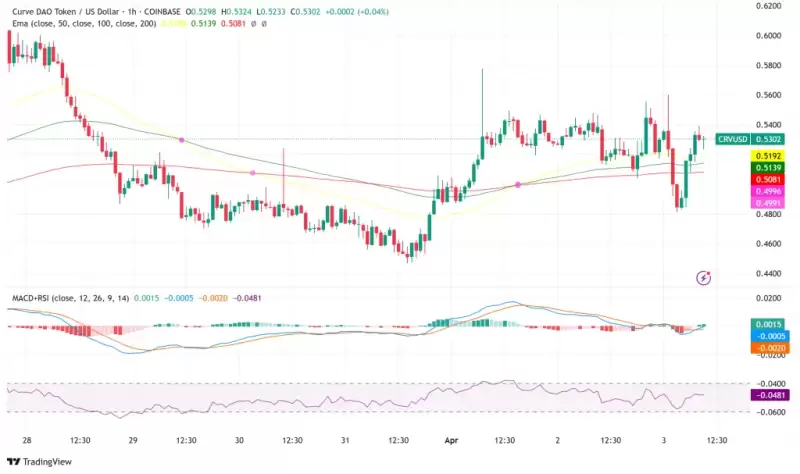 |
|
 |
|
 |
|
 |
|
 |
|
 |
|
 |
|
 |
|
 |
|
 |
|
 |
|
 |
|
 |
|
 |
|
 |
|
Cryptocurrency News Articles
Charles Hoskinson and the U.S. Government Team Up to Reshape Cryptocurrency Regulation
Nov 10, 2024 at 11:27 am
In a groundbreaking development, Charles Hoskinson, founder of the innovative blockchain platform Cardano, has announced plans to work alongside the U.S. government

Charles Hoskinson, the founder of Cardano, is set to work with the U.S. government to create new cryptocurrency legislation. This partnership, which was previously unreported, aims to bring more clarity to the rapidly expanding digital currency sector.
Hoskinson, a well-known figure in the crypto community, has long advocated for clear and logical cryptocurrency regulation. He believes that such laws are crucial for the industry's long-term health and growth. According to Hoskinson's vision, well-defined crypto regulations could lead to increased adoption and innovation, ultimately benefiting both investors and developers.
This initiative marks a significant shift in the approach towards regulating digital currencies. By working directly with government officials, Hoskinson sees an opportunity to craft regulations that protect consumers while also advancing technology. The aim is to ensure that the blockchain industry thrives under clear and transparent guidelines.
This alliance between Hoskinson and the U.S. government not only represents an important milestone for Cardano but also sets a precedent for other crypto leaders to engage proactively with regulators. As digital currencies become more integrated into global financial systems, the need for regulatory clarity becomes more pressing.
In making this move, Hoskinson is taking on a strong leadership role, potentially influencing how digital currencies are perceived and governed at both national and international levels. The outcome of this partnership could influence the landscape of cryptocurrency regulation for years to come.
The Impact of Crypto Legislation: A Deeper Look
While the partnership between Charles Hoskinson and the U.S. government to create new cryptocurrency legislation is undoubtedly newsworthy, there's a deeper narrative that's often overlooked in these discussions. This narrative explores how crypto regulations can impact people's lives, communities, and entire countries on a larger scale.
In the realm of everyday transactions, cryptocurrencies have the potential to revolutionize the way we shop, pay bills, and manage our financial portfolios. With clearer regulations, we may see an increase in businesses accepting digital currencies like Bitcoin and Cardano's ADA. This could lead to more convenient and potentially lower-cost transactions for consumers. Additionally, better-defined laws could offer more protection against fraud and theft, enhancing trust in these new forms of money.
On a community level, the integration of cryptocurrencies can stimulate local economies. For areas currently underbanked or underserved by traditional financial institutions, digital currencies provide an alternative. Communities can develop more robust economic infrastructure by using blockchain technology for secure and traceable transactions. However, this also raises questions about accessibility - will everyone have the technology and knowledge required to participate?
For entire countries, particularly developing nations, the adoption of cryptocurrencies coupled with clear regulation could help them leapfrog some of the challenges of building traditional financial systems. However, there are concerns about stability. How will nations control the economic volatility that might arise from digital currencies? Could this new form of money be a double-edged sword?
The advantages are notable: enhanced transparency, reduced corruption, and increased financial inclusion are among the most touted benefits. But these changes come with controversies. Privacy advocates worry about surveillance possibilities, as every digital transaction leaves a footprint. Others are concerned about energy consumption from cryptocurrency mining, which remains a significant environmental challenge despite ongoing advancements.
What does regulation truly mean for the decentralization that cryptocurrencies promise? And will regulatory measures inhibit innovation? While governments like the U.S. see the need to protect consumers, there’s the potential risk of stifling innovation with overly stringent policies that could deter startups and developers from entering the field.
The potential for cryptocurrencies to reshape financial ecosystems is immense, but careful balance is needed. As innovative collaborations like Hoskinson's with the U.S. government evolve, stakeholders must consider the broader implications. The challenge is to craft legislation that nurtures innovation while ensuring ethical deployment and use of cryptocurrencies.
Disclaimer:info@kdj.com
The information provided is not trading advice. kdj.com does not assume any responsibility for any investments made based on the information provided in this article. Cryptocurrencies are highly volatile and it is highly recommended that you invest with caution after thorough research!
If you believe that the content used on this website infringes your copyright, please contact us immediately (info@kdj.com) and we will delete it promptly.
-

-

- Bitcoin (BTC) ETF Inflows Have Surged Again as Investors Ignore Trump's Reciprocal Tariffs
- Apr 03, 2025 at 02:45 pm
- Inflows into spot Bitcoin ETFs have surged once again as investors chose to look past the Trump reciprocal tariffs. The net inflows across all US ETFs for Bitcoin stood at $220 million
-

-

-

-

-

- How the 1995-S Kennedy Half Dollar Could Be Worth Over $6,000
- Apr 03, 2025 at 02:30 pm
- The 1995-S Kennedy Half Dollar might look like just another coin in your collection, but don't be too quick to dismiss it. This particular coin, especially the silver proof version, has gained significant attention in recent years.
-

-

- Bitcoin (BTC) price falls four per cent after Donald Trump imposes tariffs on trading partners worldwide
- Apr 03, 2025 at 02:25 pm
- Bitcoin as well as other major cryptocurrencies fell after US President Donald Trump imposed tariffs on trading partners worldwide, which triggered a slump in risky assets.



























































